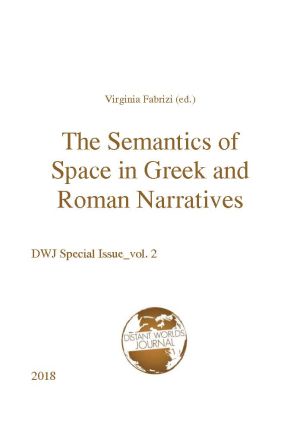
How to Cite
License

This work is licensed under a Creative Commons Attribution-ShareAlike 4.0 International License.
Published
Downloads
The Semantics of Space in Greek and Roman Narratives
The “spatial turn” of the humanities has recently stimulated a growing scholarly interest in literary representations of space and places. As narratologists have shown, the functions of space in narratives go well beyond providing a realistic or ornamental frame to the narrated events; rather, narrated spaces and places can take on semantic connotations and thus play a crucial role in shaping the meaning of a text. This book focuses on the semantics of space in Greek and Roman narratives. Contributors investigate texts that belong to different genres of Greek and Latin literature and are located at different points of a chronological span which ranges from the fifth century BCE to the first century CE. By doing so, they provide new insights into ancient ways of thinking about cities, landscapes, and society.






